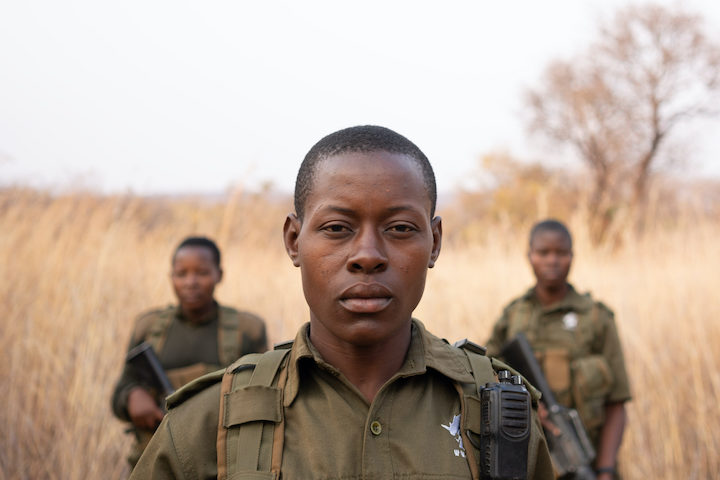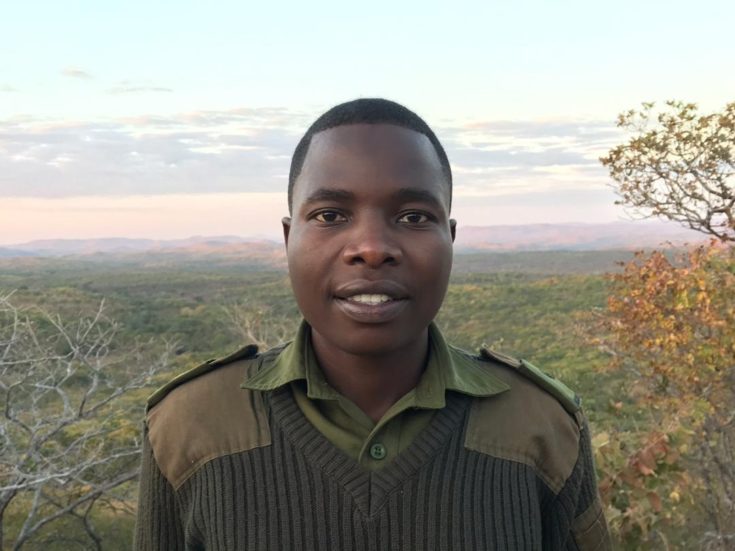Nyaradzo Auxillia Hoto is the woman leading the Akashinga: the only all Black-women team of rangers participating in the 2021 Wildlife Ranger Challenge in Africa.
Taking place on Sept. 18, the challenge features more than 20 Wildlife Ranger teams from dozens of countries across the continent.
The teams are uniting for one goal: to raise money to support the men and women defending Africa’s protected areas who continue to see drastic cuts in resources and an increase in poaching due to the devastating economic impact of Covid-19.
About The Akashinga
Akashinga translates to The Brave Ones in Zimbabwe’s local Shona dialect. The black-women team of rangers is Africa’s first armed all-women anti-poaching unit and has revolutionized how wildlife is protected across the eight former hunting reserves in the Zambezi Valley in northern Zimbabwe, according to Hoto.
“Making 191 arrests in the first 2.5 years of operations, Akashinga helped drive an 80% downturn in elephant poaching across the region and a 400% increase in wildlife populations,” she tells Travel Noire. “Furthermore, in just four years, we have made a total of 829 arrests in 459 separate operations, for a total of 536 wildlife offenses. Patrols and arrests have continued to gain momentum, with an overall conviction rate of 84.5% between 2018 and 2021 –excluding ongoing cases.”
Founded in 2017, the Akashinga are a part of the International Anti-Poaching Foundation.
“Opportunities for women in rural Africa are rare, enforcing ongoing dependency,” says Hoto. “We started with 16 women protecting 90,000 acres of Zimbabwean wilderness, where 8,000 elephants had been killed by armed poachers in the previous 16-years – amongst countless thousands of other wild animals. Following a successful pilot, Akashinga gained traction within indigenous leadership circles and spread across the region. In four years, it has grown to 240 staff, 8 project areas, and 1.3 million acres of wilderness is protected.”

The Akashinga In The 2021 Wildlife Challange
Since the onset of the pandemic, Hoto says defending Africa’s protected lands has been challenging because rangers have had their salaries significantly cut and many have been furloughed, leaving wildlife both vulnerable and unprotected.
“The rangers who remain on the frontline are as a result overstretched against a backdrop of ever-increasing wildlife crime,” says Hoto. “The current pressures on Africa’s protected areas threaten to compromise decades of development and conservation success. Africa’s rangers are stretched to capacity.”
This dire situation is why the Akashinga is taking part in the Wildlife Challenge alongside more than 100 other ranger teams in Africa. The challenge consists of a series of physical and mental challenges culminating in a 13-mile virtual race. While everyone dreams of being the champion for bragging rights, they are all winners as they join forces to preserve wildlife in the savanna, jungles, and beaches across Africa.
“Being part of a movement to ensure that rangers who are out of work can return to their vocation is an opportunity that cannot be ignored,” Hoto adds. “Wildlife rangers in Africa are the frontline protectors of the natural world. They are also ambassadors for wildlife and natural resources to the communities that live around conservancies or protected areas. Without rangers, we could lose Africa’s natural heritage and, in some cases, rare and endangered species forever.”
Other rangers teams across Africa competing include the Game Rangers International who protects Gambia’s Kafue National Park; the Rhino Ark protecting Kenya’s Mau Eburu National Park; the Uganda Conservation Foundation in Kidepo Valley National Park, the Peace Parks Foundation rangers protecting Banhine National Park in Mozambique, and more.
And you don’t have to be a ranger to protect Africa’s wildlife. You can sign up to run alongside the Akashinga and other rangers, as well as donate to support their initiatives.
